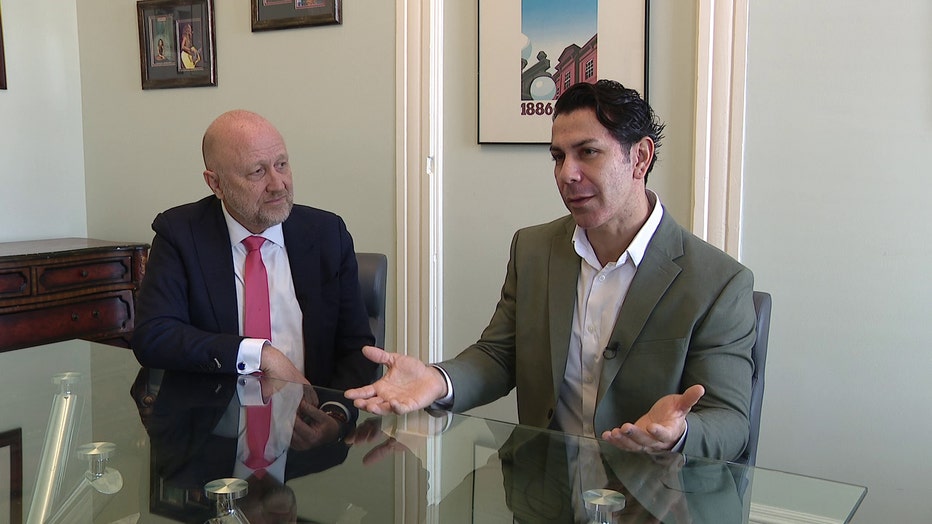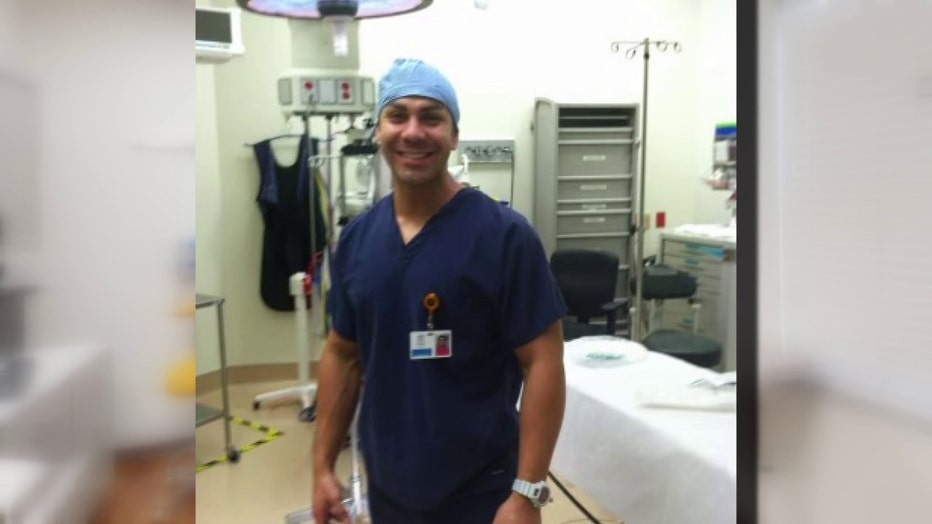Case study and science help prove the innocence of Tampa dental assistant accused of sexual battery
TAMPA, Fla. - For years, Edwin Alvis was at the top of his profession as a dental surgical assistant in Tampa Bay. But his world was turned upside down four years ago when a patient accused him of sexual battery.
Last week, a Pasco County jury found him not guilty of the charges. He says it took a lot of prayers, good solid science, and one heck of a lawyer.
READ: Pasco dental assistant accused of sexually battering teen sedated for wisdom teeth surgery
"Man, he cares," Alvis said. "He’s passionate."
Alvis is praising criminal defense attorney Bjorn Brunvand for helping him win his life back.
Back in December 2019, Alvis was working at the Tampa Bay Institute of Oral Surgery and Dental Implants.
An 18-year-old patient had accused him of sexual battery while she was under conscious sedation during a dental procedure. His DNA was then found in her chest area.
Alvis was arrested, charged, and thrown in jail. He knew he was innocent, but no one would listen.

"In a matter of seconds, your life was done," said Alvis.
Brunvand said there was a simple explanation why his client's DNA was found on the accuser. Before the procedure, Alvis put sticky patches called ‘leads’ on her chest area to monitor her heart activity.
It’s common practice not to wear gloves because the lead patches stick to them.
"So when this is happening, his DNA is going to touch the skin of the patient," explained Brunvand.
But the startling revelation came from the scientific evidence. The defense explained to the jury that a cocktail of anesthetic drugs involved in consciousness sedation can cause wild hallucinations about sexual fantasies, even sexual assault.
They brought in their own expert to explain it to the jury. Dr. Aiya Almogaber is a clinical pharmacologist who testified about the proven studies on this issue.
"So the benzodiazepines - the nitrous oxide or laughing gas - and propofol are typically your main culprits for sexual orientation and hallucinations," she said. "It may be due to the patient's inability to see things that [are] going on around them in the room."

Prosecutors didn’t have an answer for the compelling evidence or refute it. The state also wasn't able to rattle Alvis when he took the stand.
"If you don’t have anything to hide, you’re not gonna be super nervous," he said.
Close to three hours later, a not-guilty verdict was handed down by the jury. Alvis was going home a free man.
And for the first time, he began picking up the pieces of his life.
"I’m like free, I’m like free it’s finally over," said a smiling Alvis.
Brunvand urges medical providers to use video surveillance that can protect the patient’s privacy and protect the medical staff from false accusations. He says it certainly would have helped in this case.
"The video could’ve been shared with the patient that believes he or she had been victimized to show that it didn’t happen," said Brunvand.

